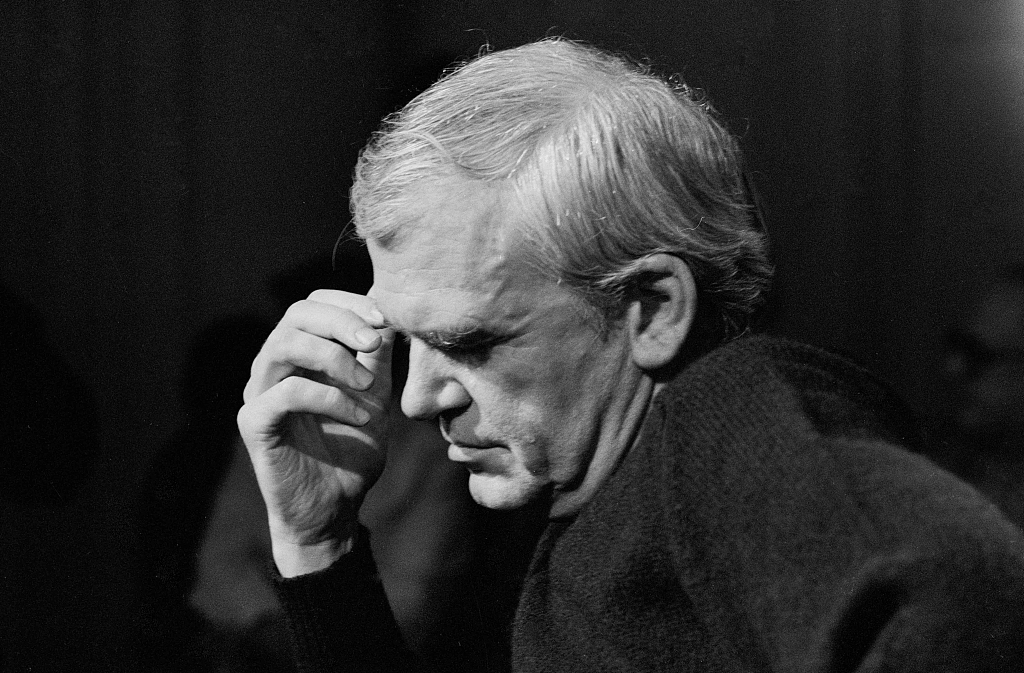Milan Kundera died Wednesday at the age of 94, after a long unspecified illness, his French publisher Gallimard confirmed.
Apart from the long-lasting praise he received for delving into the politics and ideologies of his native Czechoslovakia under communist rule, a pursuit that made him a favourite for the Nobel Prize in Literature, Kundera remained a fierce defender of plot, excitement, and entertainment in literature. With the nib of a pen that has now been put to rest, he avoided persecution, mocked dictators, and even stood up for a sexual offender who had been found guilty.
Net Worth
The author had an estimated net worth of $185 million.
Relationship
Milan Kundera had been married multiple times throughout his life. His first wife was Zdena Salivarova, whom he married in 1956. The couple divorced in 1962. Kundera’s second wife was Vera Hrabankova, a fellow writer whom he married in 1964. They had two children together, a son named David and a daughter named Helena. However, their marriage ended in divorce in 1969.
In 1975, Kundera married his third wife, Margit Pogany, a photographer. The couple had been together for several decades, and Pogany has been a source of support and inspiration for Kundera.
Career
Kundera began his writing career in the 1950s, publishing poetry and short stories. During this period, he also worked as a jazz musician and lyricist. His early works were influenced by the cultural and political climate of Czechoslovakia at the time.
Kundera gained critical acclaim with his first novel, “The Joke,” published in 1967. The book explored themes of political repression and personal identity, and it quickly established Kundera as a prominent voice in Czech literature.
Kundera’s international reputation grew with the publication of “The Book of Laughter and Forgetting” in 1979. The novel is a complex and multi-layered exploration of memory, politics, and personal freedom. It cemented Kundera’s status as a leading figure of the Czech literary scene.
Kundera’s most famous work, “The Unbearable Lightness of Being,” was published in 1984 and gained worldwide recognition. The novel explores the lives of several characters against the backdrop of the political turmoil in Prague during the late 1960s and 1970s. It delves into themes of love, fate, and the weight of existence.
Kundera continued to produce acclaimed works, such as “Immortality” (1990) and “Ignorance” (2000). His novels often explore philosophical ideas and delve into the complexities of human relationships and the human condition.
In 1975, Kundera moved to France, where he became a naturalized citizen. He began writing predominantly in French, although his earlier works were originally written in Czech. Kundera’s transition to writing in French allowed his works to reach a wider international audience.
Kundera’s contributions to literature have been widely recognized. He has received numerous awards and honors, including the Jerusalem Prize, the Franz Kafka Prize, and the Herder Prize. His works have been translated into multiple languages and continue to be celebrated for their intellectual depth and artistic quality.
Family
Kundera was born on April 1, 1929, in Brno, Czechoslovakia (now the Czech Republic). He grew up in a middle-class family.
Also Read: Who are Sam Bewley, Brent Bookwalter and Jai Hindley, Tour de France cyclists?
Quotes
Here are a few notable quotes attributed to Milan Kundera:
“The novel is not the author’s confession; it is an investigation of human life in the trap the world has become.” – Milan Kundera
“The struggle of man against power is the struggle of memory against forgetting.” – Milan Kundera, The Book of Laughter and Forgetting
“Human time does not turn in a circle; it runs ahead in a straight line. That is why man cannot be happy: happiness is the longing for repetition.” – Milan Kundera, The Unbearable Lightness of Being
“We can never know what to want, because, living only one life, we can neither compare it with our previous lives nor perfect it in our lives to come.” – Milan Kundera, The Unbearable Lightness of Being
“The stupidity of people comes from having an answer for everything. The wisdom of the novel comes from having a question for everything.” – Milan Kundera
“Love is the longing for the half of ourselves we have lost.” – Milan Kundera, The Unbearable Lightness of Being
“The basis of shame is not some personal mistake of ours, but the ignominy, the humiliation we feel that we must be what we are without any choice in the matter, and that this humiliation is seen by everyone.” – Milan Kundera, Immortality
These quotes touch upon some of the themes that are prevalent in Milan Kundera’s work, such as the human condition, memory, love, and the complexity of life. They reflect his introspective and philosophical approach to writing, inviting readers to contemplate the intricacies of existence and the challenges of being human.
Books
Milan Kundera is known for his insightful and thought-provoking novels. Here are some of his notable books:
“The Joke” (1967): Kundera’s debut novel explores the life of Ludvik, a Czech student who becomes the target of political repression after making a harmless joke about the Communist regime. The book delves into themes of identity, power, and the impact of political systems on individuals.
“The Book of Laughter and Forgetting” (1979): This novel is a fragmented exploration of memory, politics, and personal freedom. It weaves together multiple narratives and perspectives to create a tapestry of interconnected stories that challenge traditional notions of history and truth.
“The Unbearable Lightness of Being” (1984): Perhaps Kundera’s most famous work, this novel tells the story of four interconnected characters in Prague during the political upheaval of the late 1960s. It delves into existential questions, love, and the search for meaning in life, while also exploring the complexities of relationships and personal freedom.
“Immortality” (1990): In this novel, Kundera reflects on the nature of immortality and the fleeting nature of human existence. Through multiple intertwined storylines, he delves into the themes of memory, desire, and the impact of history on individuals and their relationships.
Also Read: Why did Stephen Nolan transfer production company’s shares to McLean’s Bookmakers?
“Ignorance” (2000): Set in the backdrop of Czechoslovakia’s communist past, “Ignorance” explores the themes of memory, exile, and the search for identity. The novel follows two characters who return to their homeland after years of living abroad, prompting them to confront the ghosts of their past.
These are just a few examples of Milan Kundera’s works, but his bibliography includes additional novels and essay collections. Kundera’s writing is known for its philosophical depth, complex characters, and introspective exploration of the human condition. His works continue to captivate readers with their thought-provoking themes and lyrical prose.







